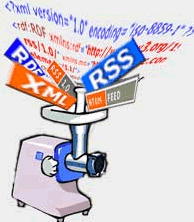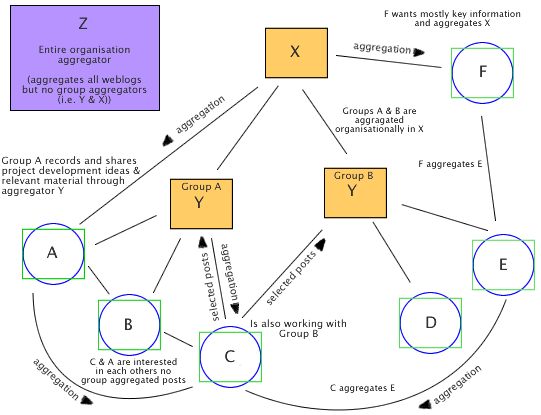There’s a lot of interesting buzz around Personal Learning by Denham Grey. It’s a cluetrain-esque post which, if I get it basically outlines D’s understanding that:
“it is the breaktime conversation, the secondhand explanation from a colleague that situates the new concept, validates its importance and sanctions its legitimacy.”
and that this is not going to happen on your own with a CBT course:
“We own a social brain and apprenticeship is the natural way to learn. We need cohorts and community to build a shared repertoire of key concepts, evolve tools, craft language, gather stories and highlight sensitivities.”
(I’m aware there’s a lot more in the post but these stood out for me)
Of particular interest in the commentaries is George Siemen’s observation that:
“Learning is more than simply dialogue with others. I’ve learned significantly over the last few years from simply reading blogs – often without dialogue. Dialogue is a catalyst to learning, but not an exclusive conduit. Different learning styles and different learning situations require different approaches. While I’m very fond of the notion of learning communities, I’m afraid that we’ll ignore the values of personal reflective/contemplative learning in our rush to embrace this concept.”
Which swills around in me, again, the importance of aggregation in regard to weblogs and vica verca (does anyone still read this by just browsing the web, now be honest :o). In particular I’m not sure about Denham’s statement that:
“The key to learning is not the medium nor the message, it is the quality of the dialog with your peers that really matters”
Because, lets be frank, the medium shapes how we communicate. Our learning and knowledge world would be a whole lot different if it wasn’t for weblogs and aggregation (imagine you’re still subscribing to that listserv and sending out lots of group emails ;o) Aggregation enables the kind of communication that George refers to and facilitates the dialogue (through comments, email, IM, VOIP or moreoftenthan not blogs) that Denham values. One without the other though is stuffed. Surely the medium makes the message?

 I’ve posted a draft version of my
I’ve posted a draft version of my 